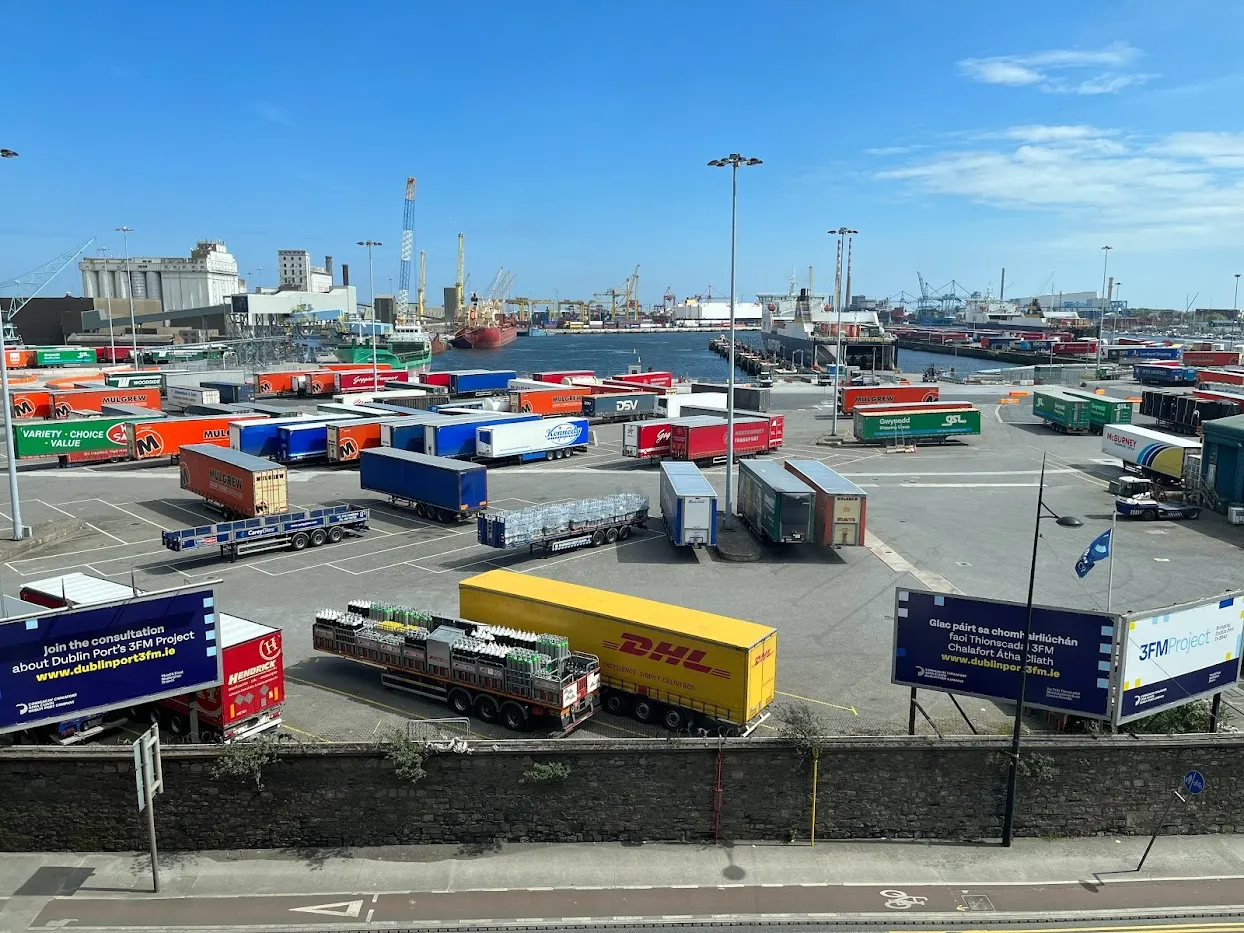
On April 26th, a group of over 80 delegates from member companies of Irish International Freight Association participated in a tour of Dublin Port. Setting out from The Gibson Hotel, the tour followed the route of incoming consignments which require customs control as they enter the country.
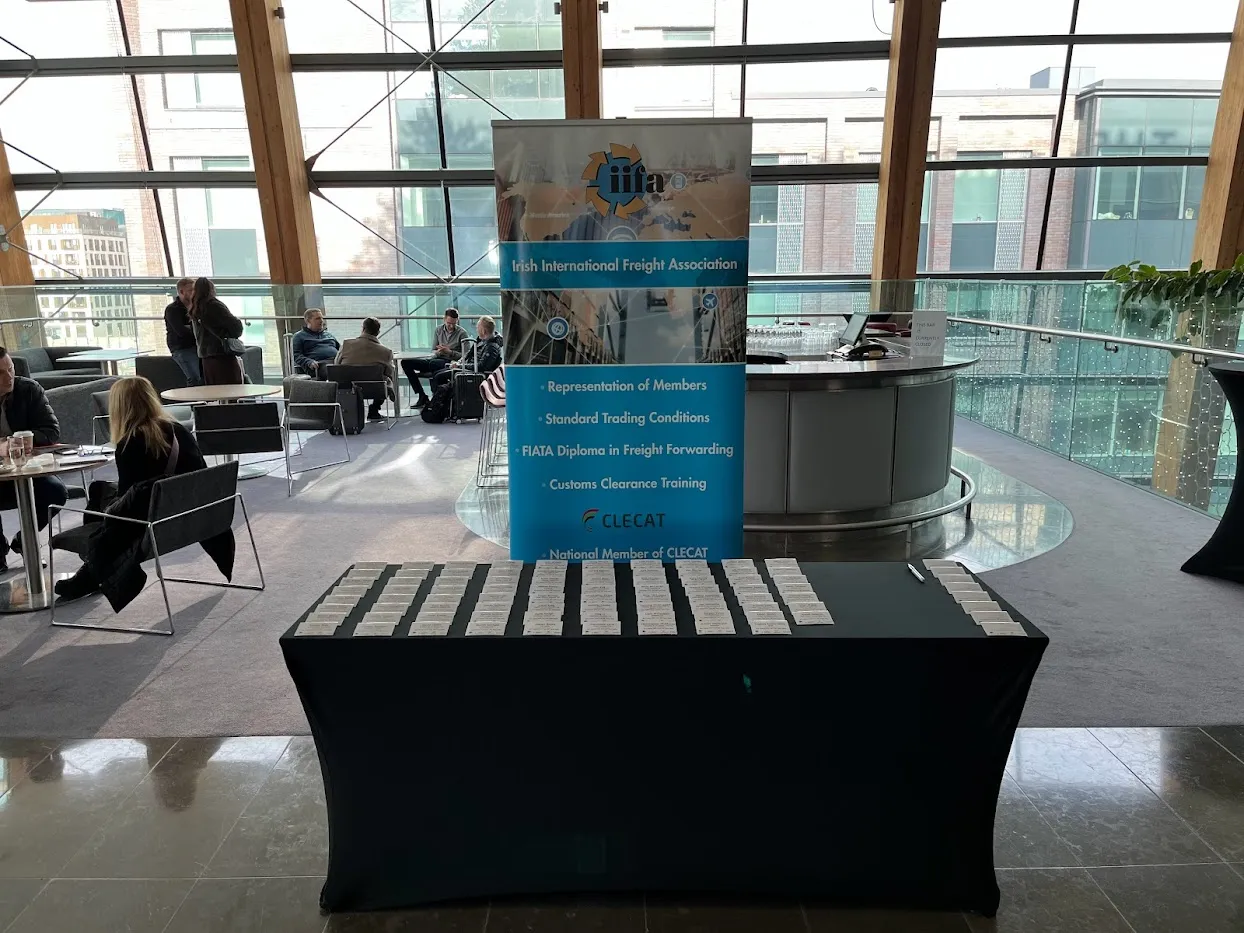
Beginning at Terminal 11 (T11), the first spot for trade facilitation at the port. T11 is managed by Revenue’s Customs Office, which oversees all activity on the Border Control Port (BCP). From there, the tour split into two directed to T7 and T10 or to T9, managed by the Department of Agriculture, Food and the Marine (DAFM).
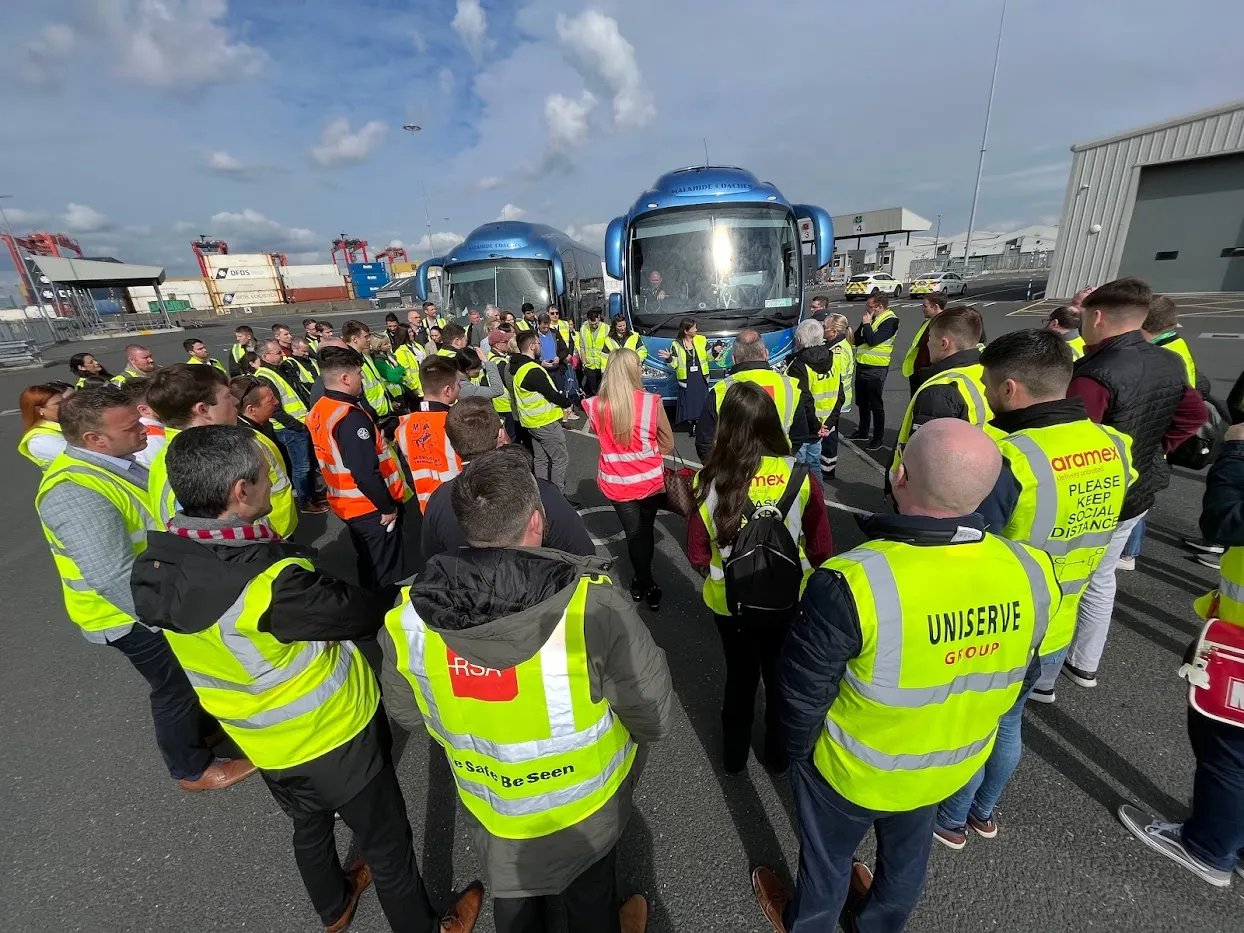
At T9, Ann-Marie Manley from DAFM led the tour regarding non-animal products, including imports of vegetables, trees, rice, and trees. The priority at T9 is on plant health and contamination, with an emphasis placed on distinguishing properly between a product’s company of origin and its country of export.
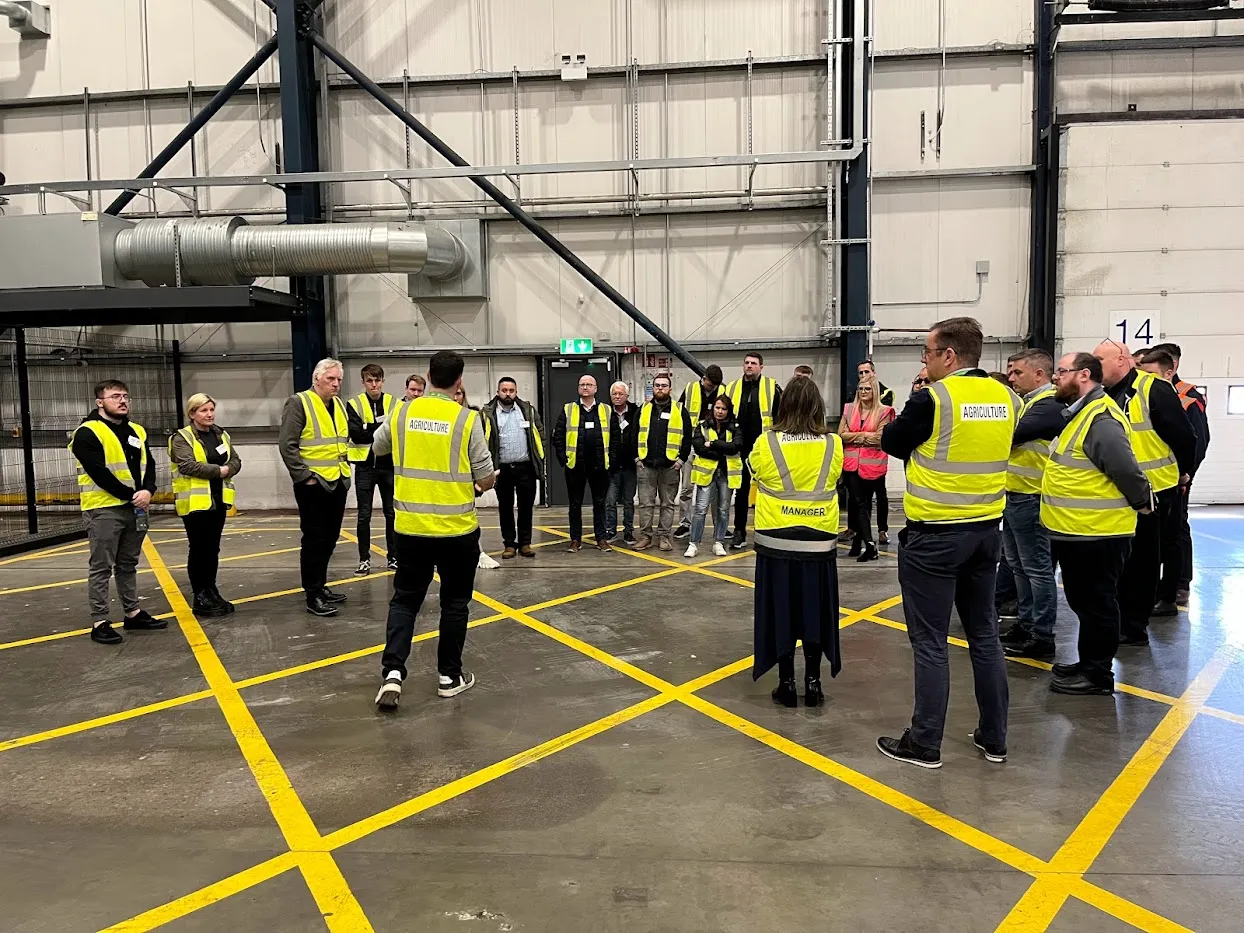
T7 functions to check seals on consignments and to confirm that all documentation is complete and accurate before a truck may leave the port. If a seal is broken, trucks are directed to T10.
It is important to note that seal inspections cannot be completed at T7, where the facilities do not exist.
At T10, staff from DAFM work to reduce waiting times on consignments and to direct companies on ways to release as much of their consignment as possible, even when lab examinations are required. The facility has capacity to hold either a whole consignment or part thereof, and recommends splitting MRNs with T11 where part of a consignment may be required for further inspection and sampling.
As well as storage space for consignments, T10 features temperature-controlled labs for all-manner of animal product inspections, to protect imports during the necessary inspections. Even with a minimum number of samples required to be inspected, according to EU regulations, T10 works to avoid detaining a truck for more than an hour.
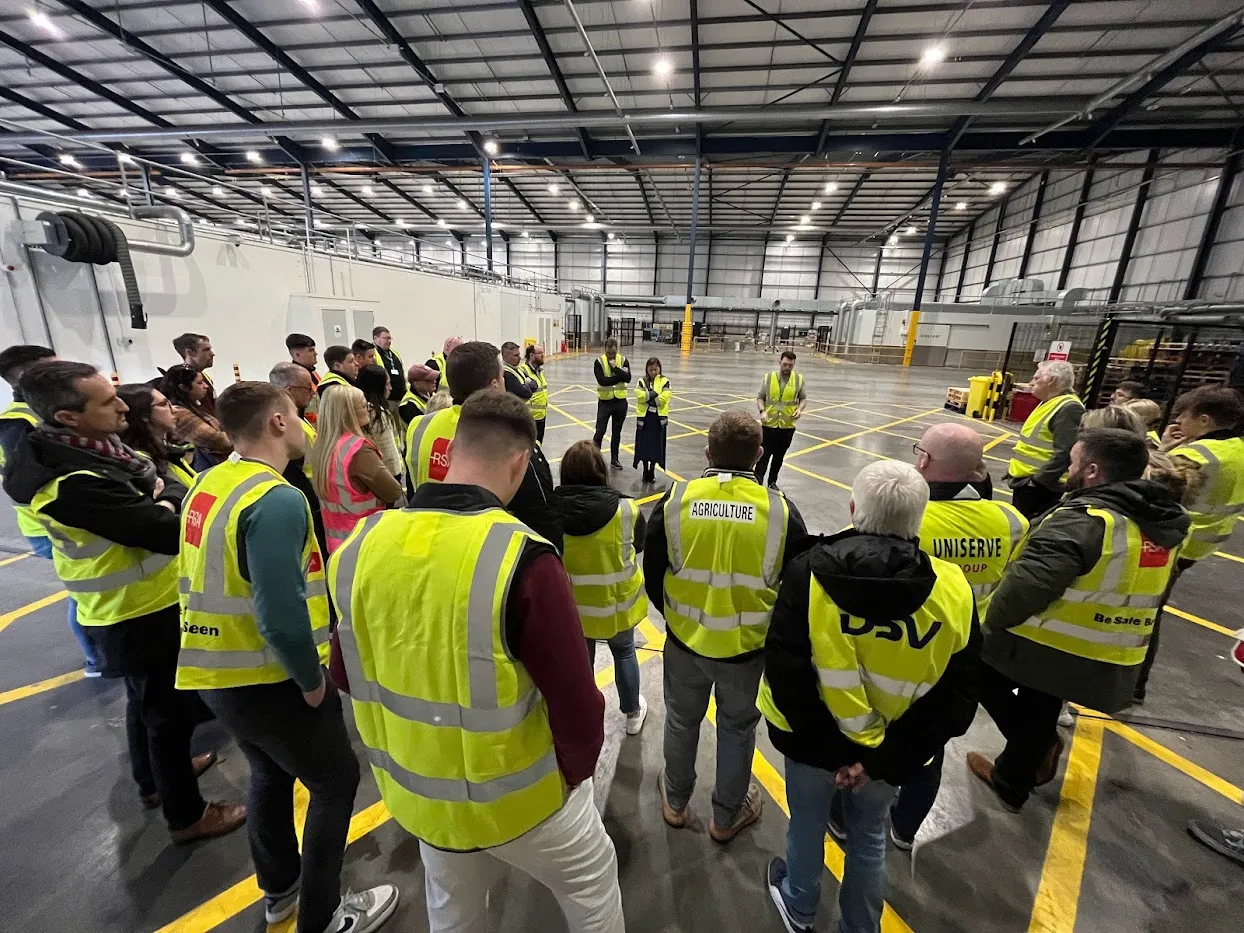
After a lunch at the Gibson Hotel, the tour party congregated for talks delivered by representatives of Revenue, the Department of Agriculture, Food and the Marine, and the Health Service Executive, whose Environmental Health Service team work out of yard 4 at Dublin Port to examination products of non-animal origin and food contact materials.
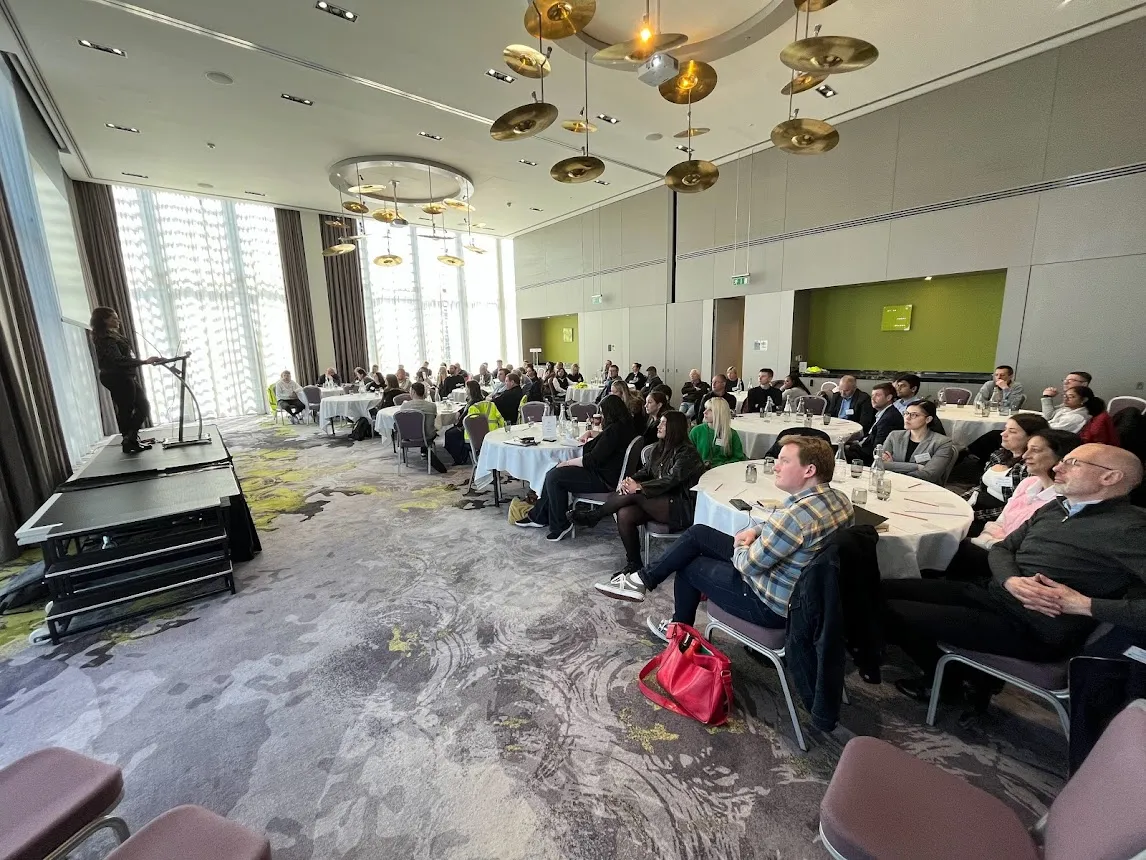
Central to the talks was a recurring theme of ensuring that documentation was completed correctly and in a timely manner, in order to reduce delays of consignments upon import. Additional to that, it was stressed that a neat and orderly consignment, packed with goods likely requiring inspection at the forefront, assists not just in clearing the consignment to complete its import process, but also to reduce the workload of the staff on site at Dublin Port.
All in all, the day was a marked success. IIFA would like to thank the representatives of Revenue, the Department of Agriculture, Food and the Marine, the Health Service Executive, and Dublin Port for their participation in and assistance with the BCP Dublin Port Tour.
This event was once again popular with IIFA Members and the Association is aware of further demand for such Port Tours. IIFA will aim to run this event again for Members in 2024.